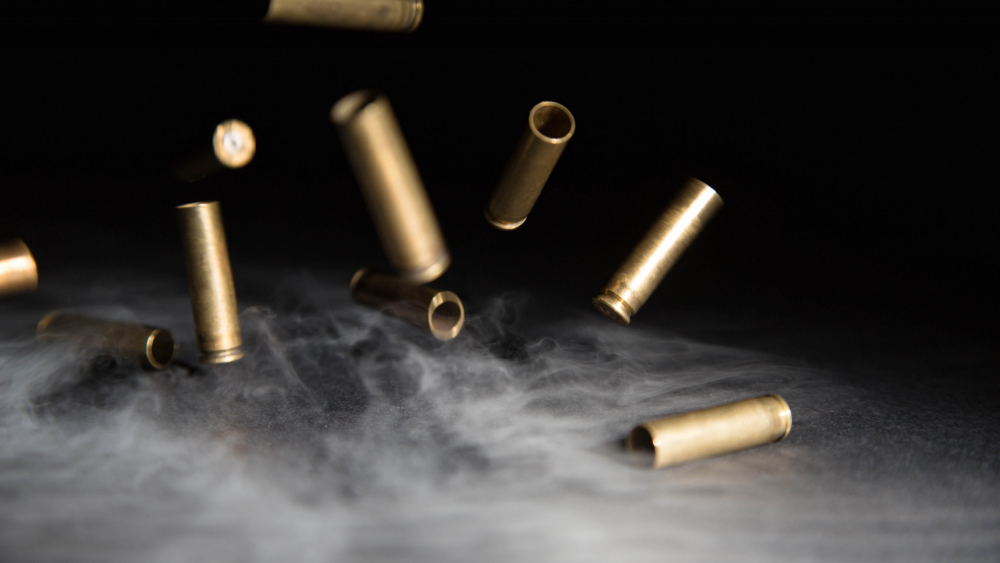If you’re interested in sharing your opinion on any cultural, political or personal topic, create an account here and check out our how-to post to learn more.
____
2020 is changing the gun control debate for good.
For one thing, citizens are experiencing tyranny first-hand. It’s hard to casually dismiss those advocating resistance against a despotic federal government. But, even more than that, the critical re-examination of systemic racism inspired by recent protests has prompted something that’s been sorely needed for years: We’re finally talking about gun control’s long, overtly racist history.
The first major gun control laws in U.S. history, such as "An act concerning Servants and Slaves" in 1705, were designed to prevent slaves from owning firearms, allowing their masters to rest easy at night. Some slaves refused to bend the knee, and among the first brazen violators of U.S. gun control laws was Harriet Tubman, renowned liberator of slaves and founder of the Underground Railroad.
But even after slavery was abolished, various “black codes” were designed to prevent freed Black Americans from owning firearms — stopping Black people from defending themselves against lynchings and other state-sanctioned violence. Organizations like the Ku Klux Klan helped enforce these racist gun laws.
Black Americans weren’t the only ones systematically disarmed and brutalized by gun control, either. The Native American population, during the process of being decimated by genocidal colonialism, was also specifically prevented from owning guns for their own self-defense.
The consequences of these laws include the most deadly domestic massacre in United States history: the Wounded Knee Massacre in 1890, that slaughtered over 300 innocent Native Americans. Can you guess what the U.S. government was up to just before massacring the Sioux? That’s right — confiscating their weapons.
Going into the 20th century, icons of civil rights — from W.E.B du Bois to Malcolm X to Martin Luther King Jr. — all owned firearms and advocated Black people use them for self-defense. During and after the 1960s Civil Rights Movement, the U.S. police state continued putting the boot on the civil rights movement via COINTELPRO, an FBI program designed to identify and neutralize “enemies” of the United States (including Dr. Martin Luther King Jr.). This time period also saw the beginnings of police militarization, which resulted in an even further divide between the powers of mostly white police officers and Black populations.
In an attempt to empower Black communities against police violence, the Black Panthers decided to assert their Second Amendment rights, acting as a check on police brutality, doing what they called “policing the police.” And what was the outcome of this practice?
It worked.
There are several documented occasions of the Black Panthers openly carrying their rifles, thereby preventing police officers from escalating attacks against people of color. But, alas, the time-honored tradition of disarming Black Americans continued when then-governor Ronald Reagan banned open-carry in California in response to the Black Panthers’ open dissent.
The history of gun control is soaked in the blood of Americans of color who died trying to protect themselves against a government out of control.
Today, that racist history has yielded racist results. Many progressive proponents of gun control are against the War on Drugs on the sensible grounds that it’s racist. The crux of their claim is that drug crimes are disproportionately enforced on communities of color.
But the effects of gun control are far worse.
Of all classes of felonies, gun control laws are enforced most disproportionately on the basis of race. The injustice of this disparity is furthered by the draconian and confusing nature of so many gun laws. Indeed, it’s impossible to fully appreciate the problems of overcriminalization and mass incarceration without seeing how gun control laws are used against communities of color.
But gun laws aren’t just weaponized to perpetuate mass incarceration. Programs like COINTELPRO are aided by draconian gun laws and continue to be used to suppress Black activism today.
Recently-leaked documents reveal a program the FBI uses to suppress BLM-related activism. According to these leaks, “Operation Iron Fist” instructs agents to “use [activists’] prohibited possessor [of firearms] status as a tactic to assist in mitigating the threat for potential violence.”
But as we saw in the case of Rakem Balogun, where a Black activist was imprisoned for expressing distasteful-but-Constitutionally-protected sentiments toward police, this program uses gun control laws to target activists for their political expression alone. Although Balogun’s charges were dropped, his story speaks to the way that gun control continues to be used to quell Black dissent.
Americans are waking up to the realities of police violence and systemic racism. More Americans get killed by the police every year than get killed in mass shootings every 10 years. Fortunately, discussions around police violence and systemic racism are beginning to connect with gun control. It’s crucial that these discussions continue. Black liberty absolutely depends on it.
____
Yusuf Mahmood is a Young Voices contributor, political activist and writer based in Washington D.C. His work has been featured in USA Today, Spiked Magazine, among other outlets.
